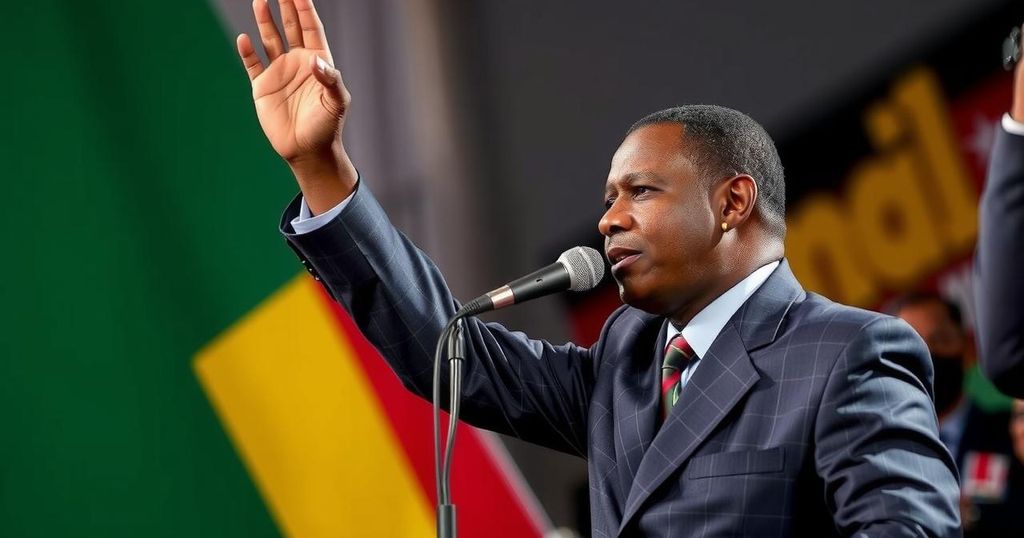Mozambique Ruling Party Declares Victory Amidst Allegations of Electoral Fraud and Violence

Daniel Chapo of the Frelimo party won the presidential election in Mozambique with 70.7% of the votes amidst violence, including the killings of two opposition figures. The electoral process faced allegations of fraud and irregularities, with calls from opposition leader Venâncio Mondlane for peaceful protests for change, highlighting the ongoing socio-political challenges in the nation.
The recent presidential elections in Mozambique culminated in a decisive victory for Daniel Chapo, the candidate representing the ruling party Frelimo, who received 70.7% of the votes, according to the election commission’s announcement. This majority allowed Chapo to bypass the necessity for a runoff, securing his position amidst a climate of violence and allegations of electoral malpractice. His closest rival, Venâncio Mondlane, garnered 20.3% of the vote, distinguishing himself as a prominent figure among the youth eager for change, although he was compelled to run as an independent due to political pressures. The electoral environment was stained by the tragic assassinations of two opposition members shortly before the polling day. Elvino Dias, an opposition lawyer preparing to contest the election’s legitimacy, and Paulo Guambe, an official of the Podemos party—supporters of Mondlane—were both killed. Such incidents have lent credence to claims of a rigged electoral process, exacerbated by civil society accusations regarding the inclusion of nearly 900,000 illegitimate voters within an electorate of 17 million. In the wake of these events, both local and international observers raised serious concerns about the integrity of the vote count, pointing to instances of ballot stuffing and other irregularities. Attached to this turmoil, Mozambique continues to grapple with severe economic challenges, notably following the discovery of a $2 billion corruption scandal that undermined international financial support. Mondlane’s campaign, which resonated with the youth demographic, emphasized the urgency for societal transformation and called for nonviolent protests. He voiced, “The time has come for the people to take power and say that we now want to change the history of this country. There won’t be enough bullets for everyone, there won’t be teargas for everyone, there won’t be enough armoured vehicles.” Amidst these calls for action, Human Rights Watch urges the government to ensure the protection of protesters’ rights while investigating reports of violence directed at demonstrators and journalists. The conduct of security forces in past years raises concerns about potential escalations in response to public dissent.
Mozambique’s political landscape has been dominated by the Frelimo party for nearly five decades, often marred by allegations of corruption, violence, and electoral irregularities. The country’s poor socio-economic conditions reflect the long-standing impacts of mismanagement and hidden corrupt practices that have led to crises such as the 2016 scandal involving undisclosed loans. Civil society groups have been increasingly active in demanding transparency and fairness in elections, as evidenced by their claims regarding fictitious voter registrations during the recent elections. The need for reevaluation of the political framework and governance in Mozambique is critical, especially considering the youthful population which has begun calling for significant reforms.
In conclusion, the recent electoral victory of Daniel Chapo amidst troubling circumstances raises significant questions regarding the integrity of the electoral process in Mozambique. The violent incidents targeting opposition figures and the allegations of widespread electoral fraud underscore the need for urgent reforms to restore public trust in political institutions. As the youth, led by figures like Venâncio Mondlane, mobilize for change, the international community must attentively monitor developments in Mozambique to ensure the protection of democratic rights and the promotion of civil liberties.
Original Source: www.theguardian.com







